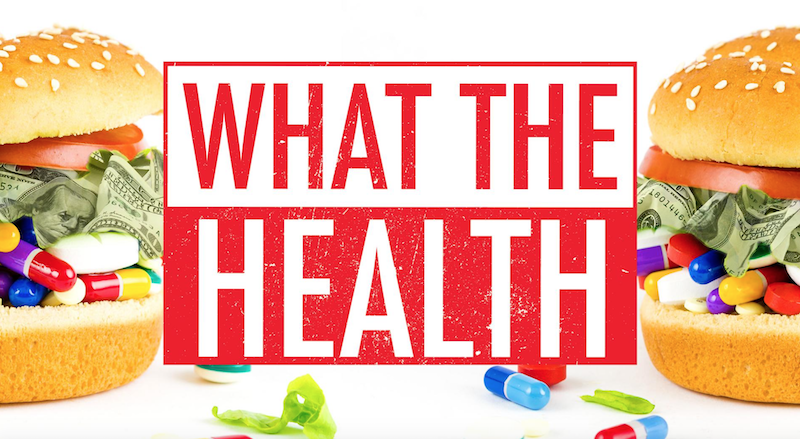You can eat kale and quinoa every day, and even have the perfect workout routine, but if you’re constantly under stress and doing little to manage it, you’re still putting your health at risk.
Trust me, I’m speaking from experience.
In 2013, I experienced a miscarriage. This would be my fourth pregnancy loss out of what would be six in a span of seven years. Within that time span, I battled severe anxiety and depression, which was accompanied by feelings of sadness, anger, frustration, guilt and shame almost every day.
Instead of addressing my emotional issues and mental health needs, I channeled what little energy I had into physical fitness and career endeavors. To the outside world, I appeared to be an exemplar of health and happiness, but I literally felt as though I was dying inside.
It wasn’t until negative feelings and emotions started to trickle into my marriage and down to my son that I decided to seek help from a mental health professional. Through therapy, it didn’t take long for me to realize I was grieving, and had been doing so for a long time, and also had been doing it all alone.
Acknowledging and embracing the grieving process was the most critical step to my emotional and mental healing. Through this ongoing process I began to accept my life for what it was, let go of what I couldn’t control, and find more joy and happiness along the way.
Miscarriage generally induces an intense period of emotional distress so it only stood to reason that recurrent pregnancy losses could result in long-lasting mental health problems. For me, this reality was further magnified by the presumption that I was doing all things ‘right’ in terms of exercising, eating well, and taking good care of my physical health.
Given that I found myself experiencing recurrent miscarriages in spite of my good physical condition, I began to think that I was somehow cursed and perhaps destined for reproductive failure. These negative feelings and thoughts further magnified my ongoing anxiety and depression.
Fortunately, therapy helped me realize how erroneous my thoughts were.
It also helped me realize that my pregnancy losses weren’t the only culprits behind my negative emotions and feelings. The truth was that I wasn’t at all pleased with the way my career was going, which left me feeling trapped in life. Additionally, I was spending a great deal of time people-pleasing instead of taking care of my own needs.
Honestly, it was only a matter of time before I experienced a real mental breakdown.
Therapy not only helped me acknowledge, embrace and better cope with loss and grief, but it also helped me reconcile my personal and professional life by relieving me of toxic stressors. I began to see just how precious my own life was and started to cherish every moment of it. I began to cherish every single experience, no matter how small or large.
The very moment I began to accept my life, my reality and these truths was the very moment I experienced a miracle and successfully conceived what would be another beautiful baby boy.
Stress is known to affect every major system in the body including the musculoskeletal, respiratory, cardiovascular, endocrine, gastrointestinal, nervous and reproductive systems. I wholeheartedly believe that improving my ability to handle stress, over time, dramatically increased the odds of my having a healthy pregnancy and truly living a healthy life.
Excessive chronic stress, which is constant and persists over an extended period of time, can be mentally and physically debilitating.
It can literally kill you—Slowly and rather silently.
Related Article: Stress: A Culprit Behind Weight Gain, Belly Fat, and Chronic Disease
It’s an uncomfortable but real truth that’s backed by research.
Stress has generally been defined as “the non-specific response of the body to any demand for change.”
In fact, according to the American Psychological Association, chronic stress is linked to the six leading causes of death—Heart disease, cancer, lung ailments, accidents, liver disease, and suicide.
In order to understand the linkage of stress to such devastating outcomes, you must first understand exactly what it is and how it affects the body.
Stress has generally been defined as “the non-specific response of the body to any demand for change.” Quoting the Greek philosopher Heraclitus, since “the only constant in life is change,” each and every one of us is prone to stress.
But stress itself is highly subjective.
For some, sitting in bumper-to-bumper traffic, a flight delay or a simple argument with a family member or friend can cause stress. For others, getting a bad grade in school or receiving a bad performance review at work may trigger stress. And, then there are those for which only major life events like death or divorce, personal injury or illness cause stress.
Regardless of the person, any stressor can trigger a cascade of events that generally begin in the brain and lead to a well-orchestrated release of stress hormones.
The primary stress hormone is cortisol.
Under normal circumstances, cortisol functions in providing the body with enough energy to cope with day-to-day challenges. However, problems arise when you’re stressed out every day, all the time.
Cortisol has a specific role in physically preparing the body for any and all situations that are perceived as ‘dangerous’, whether life-threatening or not. This essentially means that your cortisol levels can become elevated from something as simple as a flight delay or an argument to something as life changing as a death in the family or a miscarriage.
Unfortunately, prolonged or repeated cortisol elevations can have damaging impacts on the body including muscle tension and, eventually, muscle wasting, elevations in blood sugar and insulin levels, weight gain and belly fat accumulation, increased cholesterol in addition to high blood pressure, both of which greatly increase the risk of heart attack and stroke.
And let me be the first to tell you that other healthy lifestyle habits like exercising and eating well don’t cancel out these potentially negative effects. Managing stress is just as critical for health and wellbeing as these positive lifestyle habits.
Therefore, it’s important to acknowledge that you might in fact be stressed, embrace the reality, and then find productive ways of coping with it.







